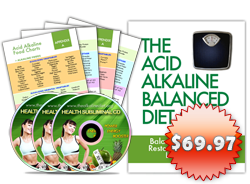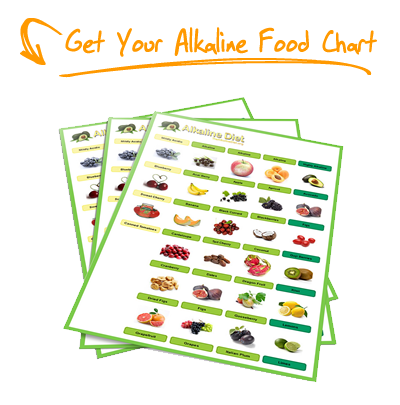Alkaline Diet Reduces the Risk of Alzheimer’s Disease
Posted on 25. Apr, 2010 by Staff Writer Candy Del Carmen in Alkaline Diet Tips, Blog
There is another interesting discovery that have been published in the Journal Archives of Neurology, which is according to researches done, almost 2,000 dementia-free adults ages 65 years and older whose diet is rich in fruits and vegetables may reduce the risk of developing Alzheimer’s disease which affecting more than 26 million people all over the world. The team collected data gathered from the 2,148 elder people for approximately 4 years. Random check-ups for Alzheimer’s disease were done every 18 months.
Among the participants, only 253 developed this degenerative and terminal disease and those who are less likely to develop Alzheimer’s were eating vegetables such as broccoli, fruits, dark and leafy vegetables, olive-based salad dressing, nuts and fish.
Alzheimer’s disease and poor eating habit
The disease is associated with plaques and tangles in the brain. Common symptoms are memory loss, aggression and mood swings, language breakdown, and eventually decline in senses and body functions leading to death.
Poor eating diet which is high in certain kinds of bad fats and acid diet is linked to causing brain damage. As the people strikes old age, the body absorbed less oxygen and no enough amounts of good fats are getting into the brain.
With this regard, alkalizing the body is most recommended to benefit from the long-term effects of alkaline diet.
Why Alkaline Diet?
Most people are unaware of the fact that our body is prone to yeast and fungus as the effect of producing highly pesticide vegetables and fruits, food processing and many factors of unhealthy diet increasing the risk of having Alzheimer’s disease as we get older. Alkaline Diet is responsible to cure the yeast and fungus that are possible to develop.
Not only that, an acid food, completely opposite of alkaline food, is another culprit of having the chance to develop this cognitive impairment. A clinical research from Austria also supported the claim of having chronically acidic blood or acidosis, can pose threat to health including variety of conditions such as weight gain, fatigue and stress, heartburn, foggy thinking, and Alzheimer’s disease.
To know if a food contains formation of alkali, take note of the food chemicals containing calcium, magnesium and potassium. Most of the products stimulate acids are aged cheeses, lunchmeat, sausages, tinned meat products, eggs, and even grains and all salt produce acid. To stimulate the greatest alkali, consume more on leafy greens, fresh fruits and vegetables, dried fruits such as raisins and prunes, roots and tubers, and nuts.
In the World’s Healthiest Foods website, there is an article posted about the laboratory animal studies of how blueberries, another alkaline food, protects the brain from oxidative stress and helps to reduce any age-related problems including Alzheimer’s disease.
Lastly, high alkaline diet rich in Omega 3 such as fish, flaxseed, and green leafy vegetables, help in preventing the formation of the plaque in the brain, as the recent study revealed by the University Hospitals Medical Center.
Starting the prevention in early stage of life
It is a well-known fact that there is no cure to Alzheimer’s disease. But as we grow older, our diet lifestyle will dictate as to whether we will live longer and maintain our healthy wellbeing, or we will suffer the consequences of our poor diet and eventually lost our memory. We are what we eat, sounds like a cliché, but absolutely true that everyone must be observed.
Reference:
http://www.examiner.com/x-7160-Sacramento-Nutrition-Examiner~y2009m6d28-Does-an-alkaline-diet-increase-bone-density
http://www.naturalsolutionsmag.com/article-display/15568/subTopicID/172/The-Acid-Alkaline-Diet
http://abcnews.go.com/Health/Alzheimers/alzheimers-diet-foods-lowerdementiarisk/story?id=10359869
http://cancertutor.com/Alzheimers/Alzheimers.html
http://www.whale.to/vaccines/flu11.html
http://www.steadyhealth.com/articles/Alkaline_Foods_and_Cancer_a1191.html
http://www.alzinfo.org/alzheimers-treatment-maintaining.asp





Recent Comments